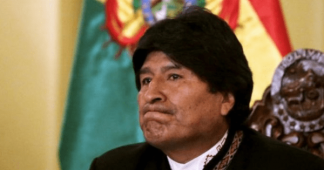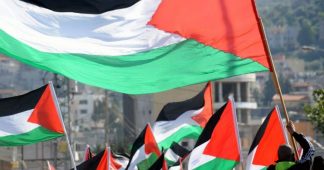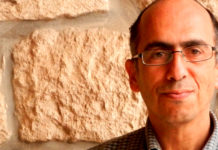The Palestinian cause was pivotal on the agenda of many African political parties in the 1970s and ‘80s. Over the last three decades, however, it has been pushed to the fringes of political discourse save for a handful of countries on the continent
by Clinton Nzala *
In June 2020, Malawi’s opposition leader, Lazarus Chakwera, defeated Peter Mutharika in a rerun presidential election. With last year’s poll results annulled due to fraud or irregularity, Chakwera, a theologian, pastor, and former president of the Pentecostal denomination group known as the Malawi Assemblies of God, secured over 58% of the votes in this year’s race. “I do feel like Lazarus, I’ve come back from the dead, it’s been a long journey and we feel vindicated in a way,” he told the BBC shortly after being sworn in.
“God spoke to my heart,” Chakwera said on another occasion, describing his political ambition as a divine calling. ‘I am not pulling you out of ministry. Instead, I am extending your ministry. I want you to get into politics.” The General Secretary of the Evangelical Alliance of Malawi, Rev. Francis Mkandawire, expressed joy for Chakwera’s electoral victory. “We are indeed grateful to God, however, it demands of us, as evangelicals in the nation, to earnestly pray for him and get more involved in the public and marketplace as the salt and light. Pray for us.”
Five months after his inauguration, Chakwera’s Foreign Minister, Eisenhower Mkaka, announced the opening of Malawi’s embassy in Jerusalem by the summer of 2021. It will become the first African diplomatic mission to operate in occupied Palestine since the 1950s. In response to the decision, Israeli Foreign Minister Gabi Ashkenazi said, “Jerusalem, the eternal capital of the State of Israel, will be a bridge of peace for the whole world, and I call on more countries to follow in Malawi’s path and move their embassies to Jerusalem, the capital of Israel.”
For decades the African continent has served as a battleground of influence between Israeli lobbyists and supporters of Palestinian rights. With the election of Lazarus Chakwera, they can count on Malawi as being not only a trusted ally in isolation but a beacon of influence in sub-Saharan Africa. History attests, however, that this has not always been the case
History of Africa-Israeli relations
Relations between African countries and Israel date back to the late 1950s and early 1960s. As this period saw a wave of independence movements sweeping across the continent, Tel Aviv waged a campaign to lure the aspiring and newly independent nations to its side. Using economic assistance as bait, the campaign achieved relative success. By 1967, more than 25 sub-Saharan African countries had established some form of diplomatic relations with Israel. However, rifts began to occur during the 1967 Israeli-Arab war and the subsequent occupation of Palestinian territories by Israel.
In an unprecedented move, Zambia and then Zaire (now known as the Democratic Republic of the Congo), two countries which previously were known to have very cozy relations with Tel Aviv, voted against a UN resolution sponsored by a bevy of Latin American countries in support of Israel. The October Israeli-Arab War proved to be the final straw between African countries and Israel. In line with a resolution of an emergency session of the Organization of African Unity (O.A.U) Council of Ministers, more than 40 African countries broke diplomatic ties with Israel. This watershed moment, much to the chagrin of Israel and its supporters, also saw increased support for the Palestinian cause by African Nations at the UN.
Israeli diplomatic offensive
Following the severance of diplomatic relations in the aftermaths of the October Israeli-Arab war, Israel launched a diplomatic offensive to win back favor with sub-Saharan African countries. The strategy employed carrot and sticks. In effect, African leaders who showed signs of warming up to Tel Aviv were rewarded with economic and military aid, agriculture and youth support programs, and other incentives. On the other hand, African nations that maintained support for the Palestinian cause faced threats of coups and rebel groups backed by the Israeli government.
The late Ugandan President, Milton Obote, accused Israel of having played a key role in the 1971 coup against him by General Idi Amin. Just a few years prior to the coup, Amin had attended a paratrooper course in Israel and he maintained close relations with Tel Aviv during his tenure as Chief of Staff for Uganda’s army.
Obote had steadily fallen out of favor with Israel as he strengthened ties with African-Arab countries such as Egypt and Sudan. Israeli viewed such positions as threats to its agenda on the continent. The Ugandan president’s reluctance to allow Israel to channel military aid to the Anya-Nya anti-government rebels in southern Sudan further strained relations. As expected, Israel denied providing military aid to the rebel group. After the coup which removed Obote from office, Amin’s first international trip was to Israel. Soon thereafter, he promised to reverse Uganda’s pro-Palestine position at both the Organization of African Unity (O.A.U.) and the UN.
Israel went on to provide intelligence and military support to Ethiopian strongman Haile Mariam Mengistu in his war with Eritrean pro-independence fighters who were also seen as being too close to Arab states. Despite these geopolitical investments, Tel Aviv’s positioning on the African continent produced lukewarm results and, by the 1980s, only a handful of African countries had restored full diplomatic relations with Israel. Many more continued voting against their occupation of Palestine at the UN.
Enter Pentecostalism
The 1990s gifted Israeli with an unexpected ally, the newly emergent Pentecostal movement. Influenced by U.S evangelicals, the Pentecostals would also adopt hardline views on the Palestinian cause. The Pentecostal wave, which had been sweeping across Africa for the past two decades, reached a crescendo in the early 1990s for a number of reasons.
Researchers such as Malawian writer Mkotama Katenga-Kaunda, have attributed this phenomenon to the Structural Adjustment Programs (SAPs) which many sub-Saharan countries were implementing at the behest of the World Bank and International Monetary Fund (IMF). The implementation of the SAPs left many African economies in tatters. Graduates were unable to find jobs and unemployment spiked exponentially, significant funding to social sectors such as health and education were cut, and crime and political violence increased. This environment provided a fertile ground for the burgeoning prosperity gospel.
Millions of citizens across Africa who had lost all hope in their governments found refuge in Pentecostal churches that promised instant solutions for issues ranging from unemployment and sickness to finding suitable spouses. As millions flocked to these churches, the influence and political clout of the charismatic preachers also increased
In November 1991, Frederick Chiluba, a trade unionist, self-proclaimed pastor, and devotee of U.S. Tele-Evangelist Reinhard Bonnke, was elected President of Zambia. Within a month of his election, he declared Zambia to be a Christian nation. A largely symbolic decision, it served no purpose other than pandering to his Pentecostal base, which had played a key role in ushering him into office.
In another unorthodox decision, Chiluba created a Religious Affairs desk at the state house. Such decisions exemplified just how much Pentecostalism was muscling its way into Zambian politics. The phenomenon was also taking place in other parts of the African continent.
In 1999, Olusegun Obasanjo was elected president of Nigeria, Africa’s most populous nation and the epicenter of the continent’s Pentecostal movement. While there is no doubt that numerous social and economic factors contributed to Obasanjo’s election, Pentecostal organizations such as the Pentecostal Fellowship of Nigeria played a key role in mobilizing support for Obasanjo, a Christian from southern Nigeria. This period marked the beginning of what the U.S based Nigerian scholar, Ebenezer Obadare refers to as the ”Pentecostalization” of governance.
As the newly emergent ‘theocratic elite’ wormed its ways into presidential palaces across Africa, fundamental changes also occurred in the political discourse. A key point was the 360-degree turnaround on Afro-Palestine relations.
The African Pentecostal movement’s views on Israel and Palestine are largely based on the views of their peers across the Atlantic ocean—U.S evangelicals. The basis of their position is that Israel is God’s chosen nation and the return of Jesus Christ, that fulfillment of prophecy, will occur on occupied Palestinian land. They also refer back to the old testament to push the claim that Palestinian land belongs to the Jews, a view which Pentecostal members have also been indoctrinated with. According to this concept, it is a “sin” for one to criticize or condemn any act committed by the state of Israel.
Long before assuming a more prominent political role, Pentecostals had mobilized support for Israel through a number of initiatives including taking members on tours of Israel as part of a so-called “religious diplomacy.” As the movement enjoyed numerical growth and gained more political influence, they started to push pro-Israel propaganda within the corridors of powers.
In 1993, largely due to Pentecostal lobbying, President Chiluba restored diplomatic relations between Zambia and Israel. Rapprochement came after ties had been severed by his predecessor, Kenneth Kaunda, twenty years earlier. Pentecostal religious elites have also used their influence to neutralize any criticism of Israel and its human rights violation by portraying such criticism as an attack on the Christian faith. While most African governments have, to a large extent, maintained their position and voting bloc at the UN regarding Palestine, politicians and officials are much more timid when it comes to condemning the Israeli occupation and the abuse of Palestinian rights.
The Palestinian cause was pivotal on the agenda of many African political parties in the 1970s and 80s. Over the last three decades, however, it has been pushed to the fringes of political discourse save for a handful of countries. In South Africa, the African National Congress (ANC) and trade unions such as the Congress of South African Trade Unions (COSATU) and the National Union of Metal Workers (NUMSA) have maintained their unwavering support and solidarity with the Palestinian people. This, despite fierce opposition from Pentecostal organizations, right-wing opposition parties such as the Democratic Alliance and African Christian Democratic Party (ACDP), and organizations such as the South Africa Friends of Israel (SAFISA).
Pentecostal organizations, in collaboration with right-wing political and civil organizations, have, in the last couple of years, organized in different parts of Africa what they call, Jerusalem Prayer Breakfasts. These poorly disguised religious events are, in fact, political forums held for the sole purpose of mobilizing support for Israel and ending African support for the Palestinian cause. The 2019 breakfast in Uganda’s capital of Kampala was attended by several business leaders, diplomats, pro-Israel legislators, and other senior government officials, including the country’s first lady, Janet Museveni.
Numerous pro-Israel politicians and political parties have emerged across Africa as a result of Jerusalem Prayer Breakfasts and similar events. One prime example is the United Progress People (UPP) Party of Zambia, which is led by a former Member of Parliament, Saviour Chishimba. He describes himself as a “devout Christian and staunch pro-Israel politician.” Chishimba’s party’s logo is an Israeli flag, three doves, and the blue star of David.
In an interview with an Israeli newspaper during a visit to Jerusalem, Chishimba described Kaunda’s decision to cut ties with Israel as “the worst atrocity” and blamed the decision for the country’s economic woes. He added that “Israel is a blessed nation and this is why we should be closer to it so the blessings that God pours out on Israel will be spilling to us.”
The UPP is just one example of the many quasi-political organizations that have been established with the help of Pentecostal organizations for the sole purpose of pro-Israeli advocacy and suppressing African support for the self-determination of Palestine.
The deafening silence by African governments and political movements on maneuvers by Benjamin Netanyahu’s government to annex Palestinian territories is not by chance. It is a reflection of how fast and deep the tentacles of this pro-Israeli, religious-political alliance are spreading on the continent. South Africa’s Economic Freedom Fighters (EFF), African National Congress, NUMSA, COSATU, and Zambia’s Socialist Party issued statements condemning the U.S. embassy opening in Jerusalem two years ago.
“We are very disappointed at African countries which had celebrated the declaration of Jerusalem as the official capital city of Israel by the USA,” said Julius Malema, leader of the EFF. “That is the highest form of betrayal because us as Africans should know that colonialism and imperialism have no place in humanity. It’s a violation of human rights to go and occupy the land of Palestinians. We don’t support that.”
Despite voices like Malema, far too many political party leaders in Africa have purposefully decided to feign blind to Israel’s illegal actions. Hence, the question remains. How long will it take before even those handful of progressive voices are silenced?
Way forward
Basking in Malawi’s promise of opening an embassy in Jerusalem, there is little doubt that Israel will continue its efforts to gain more allies in Africa, thus diffusing the continent’s historic support for Palestine. Just how Malawi’s overture will, according to its Foreign Minister Eisenhower Mkaka, “contribute towards the country’s food security strategy and accelerated and sustained socioeconomic development of the people,” remains to be seen.
Albeit not having a single chair on the UN security council, Africa’s 54 countries still remain a critical voice and voting block at the international body. A number of African countries are also active members of the Boycott, Disinvest and Sanctions (BDS) movement. Consequently, African progressives and human rights activists do not have the luxury of standing on the sidelines and watching Zionists sympathizers sway the continent’s principled position regarding Palestine.
There is an urgent need for progressive African organizations to unite in highlighting the plight of Palestinians and why African support is essential to the cause. It is also necessary for these organizations to expose the shallow viewpoint perpetuated by pro-Israeli supporters that aim to portray the Israeli occupation as a conflict between Christians and Muslims. It is important to remind Africans that as a people who experienced centuries of oppression, we have a noble duty to expose and fight oppression wherever it rears its ugly head, irrespective of the color, creed or religious affiliation of the victims. In the words of Nelson Mandela,
We know too well that our freedom is incomplete without the Freedom of Palestinians.’’
* Clinton Nzala is a Political Strategist and Analyst based in Quito, Ecuador. He works for Pan-Latin American news outlet, teleSUR. He has worked with various political and social movements across Africa as a mobilizer and organizer.
Published at www.mintpressnews.com











